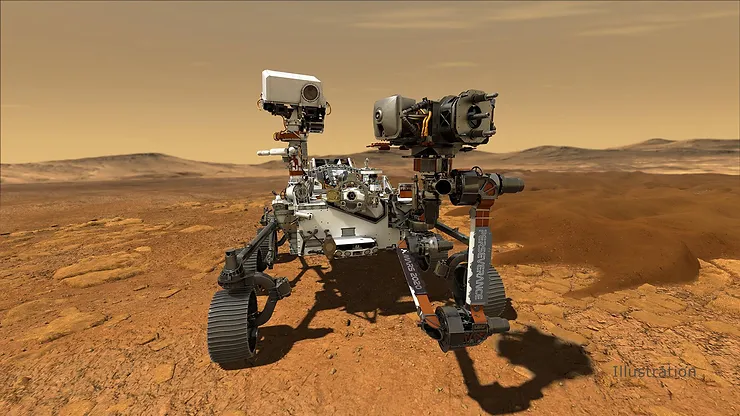By: Samuel Guo
The Curiosity rover is a robotic space exploration mission that was developed by NASA’s Jet Propulsion Laboratory (JPL) in Pasadena, California. It was launched on November 26, 2011, from Cape Canaveral, Florida, aboard an Atlas V rocket.
The primary purpose of the Curiosity rover is to explore the surface of Mars and investigate its geology and climate, as well as assess the potential for microbial life on the planet. The rover is equipped with a variety of scientific instruments, including a laser for vaporizing rocks, a drill for collecting samples, and cameras and sensors for navigation and environmental monitoring. “Curiosity is the most capable rover ever sent to Mars. It has the ability to drive over rough terrain, drill into rocks, analyze samples with its onboard laboratory, and even use a laser to zap rocks from a distance. Its advanced capabilities allow us to study the geology and chemistry of Mars like never before.” – John Grunsfeld, former Associate Administrator for the Science Mission Directorate at NASA.
Since its arrival on Mars, Curiosity has explored the Gale Crater, a 96-mile-wide depression on the planet’s surface that was once filled with water. The rover has made many important discoveries during its mission, including evidence of ancient water and organic compounds on Mars, as well as data on the planet’s radiation environment, weather patterns, and geological history.
Curiosity’s mission has been extended multiple times since its initial two-year mission, and it continues to operate on Mars today, more than nine years after its launch. Its success has paved the way for future Mars missions, including the Mars 2020 rover mission, which expanded our discoveries made by Curiosity and further advance our understanding of the red planet. “Curiosity is an incredible machine with a suite of scientific instruments designed to uncover the mysteries of Mars.” – Dr. Michael Meyer, lead scientist for NASA’s Mars Exploration Program. “It has already made amazing discoveries and provided us with a wealth of information about the red planet, and we are excited to see what it will uncover in the future.”











